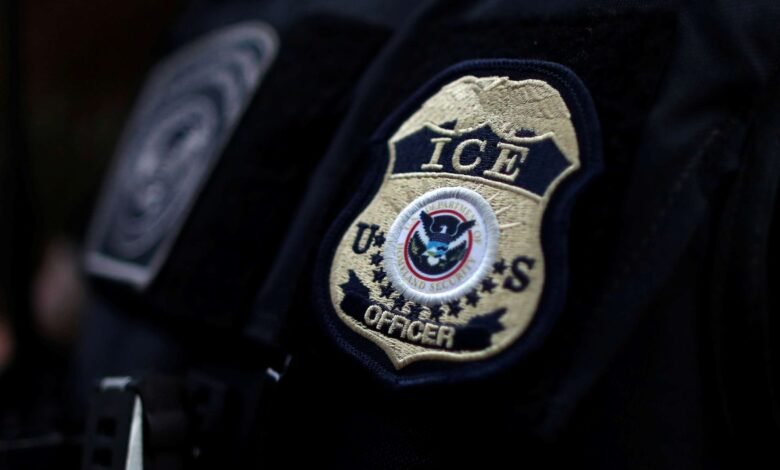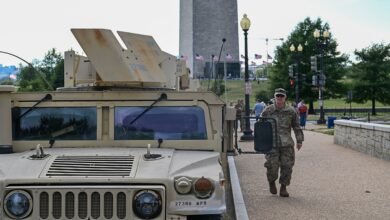The judge rejects the application of last minute, racing the elimination of 8 migrants arrested in Djibouti

A federal judge denied on Friday a request for the eleventh hour of a temporary restriction order that blocks the elimination of eight migrants arrested in the African nation of Djibouti, racing the way for the Trump administration to complete its removal to South Sudan.
The migrants, who were sentenced in the United States of violent crimes, received removal warnings and were placed on a flight from the United States to the country of Eastern Africa of South Sudan in May, but after the United States district judge, Brian Murphy, blocked the attempt of the administration to deport the group without giving them a sufficient opportunity to dispute their removal, the group disbursed in Djibouti, where they were celebrated in Djibouti An United States army in legal custom.
In an unpleasant opinion on Thursday, the Supreme Court explained that, since it lifted the requirements of due process of Judge Murphy for the moving of the third country last month, the government can no longer be considered to allegedly violate the requirements, clearing the way for the administration to withdraw them to South Sudan, a country with which men do not have ties.
On Friday, only a few hours before men were scheduled to board a plane for South Sudan, the United States District Judge, Randolph Moss, issued an administrative stay in a new case presented on behalf of the eight men.
“We are not trying to challenge an elimination order,” said a lawyer who represents men at a hearing on Friday afternoon in Washington, DC, “we are trying to challenge the act of sending the petitioners to a place where they can be tortured, damaged or definitely imprisoned.”
Judge Moss ordered that the stay allowed the parties to seek relief from the Massachusetts district, where Judge Murphy issued his original ruling.
Judge Murphy, in an order issued on Friday night, denied the application of the plaintiffs of a temporary restriction order.

The badge of the director of the ICE field office, the Fugitive Operations Team for the application and removal of application of David Marin and the United States (ICE).
Lucy Nicholson/Reuters, file
“This court interprets these orders of the Supreme Court as binding for this new request, since the petitioners are now raising substantially similar claims and, therefore, the motion of the petitioners is denied,” wrote Judge Murphy.
The lawyers of the Department of Justice said the men were scheduled to be transferred to South Sudan at 7 pm et.
The DAJ lawyers affirmed during the Friday hearing that they had spoken with the officials of the State Department during the break and who had received a guarantee of southern Sudan of their deportation there, the men would be granted an immigration state “in accordance with the national laws and the southern Sudan immigration procedures” that would allow them to remain in the country “temporarily”. But the lawyers had no information about whether they would be detained or not.
“We have certainly not asked to be arrested, and our understanding is that there is no reason to think that they will be, but that last part is obviously speculation,” said a lawyer from the Department of Justice.
Judge Moss echoed the lawyers of the plaintiffs concerned that men could face torture and be damaged if they were deported to South Sudan.
“I think, like all of us, I do not want to see anything happens to any of these plaintiffs in this case, or anyone who involves violent acts or body damage or anything of that nature,” said the judge. “Obviously, it is not necessary to say that even when someone has been convicted of having committed a terrible crime, after that person has fulfilled his sentence, our government, nor anyone else should be in the business of inflicting pain and suffering to other human beings, simply for doing so.”
“And I think it seems almost evident that the United States government cannot lead to humans and send them to circumstances in which their physical well -being is at risk simply to punish them or send a signal to others that if it comes to the country and commits a crime, it will not only be processed in the United States for that, but will be sent to some horrible situation,” he said.





